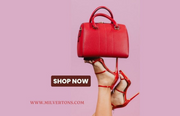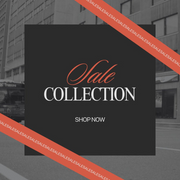
Ethical Fashion: Making Informed Apparel Choices Today
The Milvertons StoreShare
Frequently Asked Questions
1. What is ethical fashion?
2. How can my apparel choices impact global issues?
3. What should I look for in ethical fashion brands?
4. How can consumers promote ethical fashion?
5. What are some tips for building an ethical capsule wardrobe?
In our modern world, the clothing we choose to wear tells a story—a story of our values, preferences, and awareness of societal issues. The fashion industry has a significant impact not only on our individual styles but also on the environment and the economics of the regions that produce our garments. Embracing ethical fashion is about making informed choices that consider both style and ethics. In this comprehensive guide, let’s explore what ethical fashion entails, the implications of our choices, and how we can contribute to a more sustainable future.
Understanding Ethical Fashion
Ethical fashion is an umbrella term that encompasses various aspects of sustainable and moral practices in the apparel industry. It focuses on ensuring fair labor practices, reducing environmental impact, and promoting animal welfare. When we engage with ethical fashion, we are not just thinking about the aesthetics of our clothing; we are also considering the story behind the garments we purchase.
The Key Principles of Ethical Fashion
Here are some core principles that underline the concept of ethical fashion:
- Fair Trade: Ensures that producers receive fair wages and work in safe conditions.
- Environmental Sustainability: Involves producing clothing with minimal environmental footprints, including reduced water usage and non-toxic dyes.
- Transparency: Brands that are open about their sourcing, production, and labor practices.
- Animal Welfare: Avoiding the use of materials from cruelly treated animals.
- Local Sourcing: Supporting local economies by purchasing from regional producers.
The Impact of Your Apparel Choices
When thinking about your wardrobe, it’s crucial to recognize the role that your apparel choices play in larger global issues. The fast fashion model, which promotes rapid consumption of low-cost, trend-driven clothing, poses challenges such as environmental degradation, exploitative labor practices, and an increase in textile waste.
By pivoting toward ethical fashion, consumers can help combat these issues. A single purchase decision can have far-reaching effects, from the well-being of garment workers to the sustainability of our planet's resources.
Exploring Women’s Casual Dress in an Ethical Context
Women’s casual dresses exemplify a versatile style choice. However, opting for ethically made women’s casual dresses can ensure that your wardrobe aligns with your values. Select brands that prioritize eco-friendly materials, transparency, and fair labor practices. Here are some styles to consider:
- Organic Cotton Dresses: Soft, breathable, and made without harmful pesticides.
- Recycled Fabric Dresses: Utilizing waste materials to create stylish clothing with a purpose.
- Locally Sourced Dresses: Supporting local artisans who provide their craftsmanship while reducing emissions from long-distance shipping.
By choosing these options, you not only enhance your wardrobe but also support practices that promote sustainability and ethical responsibility.
The Rise of Ethical Brands
Many brands are stepping up to meet the demand for ethical fashion. They focus on crafting apparel that meets consumer needs without compromising on ethics. When you buy from these brands, you are investing in a commitment to sustainability and ethical production methods.
What to Look For in Ethical Fashion Brands
Here are several attributes that characterize a responsible and ethical fashion brand:
- Certification: Look for brands that have third-party certifications like Fair Trade, GOTS (Global Organic Textile Standard), or PETA approved.
- Sustainable Materials: Brands that utilize organic, recycled, or upcycled materials.
- Transparent Supply Chains: Companies that are open about the factories and farms where they source their materials.
- Impact Initiatives: Brands that give back to communities or support projects focused on social improvement.
The Role of Consumers in Promoting Ethical Fashion
As consumers, we hold the power to influence the market. When we prioritize ethical fashion, we create a demand that encourages brands to implement responsible practices. Here are some tips for promoting ethical fashion in your shopping habits:
- Research Brands: Discover their values, mission statements, and practices before making a purchase.
- Support Local: When possible, purchase from local designers or brands that engage in ethical practices.
- Invest in Quality: Choose higher-quality pieces that will last longer instead of fast fashion items.
- Spread the Word: Share your ethical fashion journey with friends and family to raise awareness.
Fashion Meets Functionality: The Italian Shoe and Bag Set USA
Another rising trend in ethical fashion is the rise of functional yet stylish footwear and accessories. For instance, an Italian shoe and bag set not only involves exquisite craftsmanship but also represents a commitment to quality that transcends fast fashion. Many Italian brands offer shoes and bags made from sustainable materials, ensuring that while you look chic, you also contribute to ethical consumerism.
Choosing the Right Footwear
When selecting shoes, consider the materials used and the workers who manufacture them. Here are a few ethical criteria to consider:
- Material Sourcing: Look for shoes made from eco-friendly materials like organic leather or synthetic alternatives that don’t harm the planet.
- Production Methods: Research companies that use low-impact processes to create their footwear.
- Ethical Workplaces: Prioritize brands that provide fair labor conditions for their employees.
Building a Capsule Wardrobe with an Ethical Twist
Creating a capsule wardrobe is an excellent approach to promote sustainability and ethical fashion. It involves curating a small collection of timeless pieces that can be mixed and matched freely. Here’s how to build an ethical capsule wardrobe:
- Choose Versatile Pieces: Select items like blouses, dresses, or pants that can be dressed up or down.
- Focus on Quality: Invest in durable clothing that will withstand wear and tear.
- Consider Color and Style: Opt for neutral colors and classic styles that will stand the test of time.
- Incorporate Accessories: Ethical accessories, like bags and shoes, can transform any look.
From Awareness to Action: Be a Part of the Change
In a world that is increasingly aware of the implications of fashion, taking action towards ethical choices is crucial. By understanding the stories behind your clothing, you can cultivate a wardrobe that mirrors your values and makes a positive impact. This movement is more than a fleeting trend; it’s a lifestyle choice that prioritizes humane practices and ecological mindfulness.
Explore your options, embrace sustainable styles, and share your journey with your community. Remember, every piece of clothing has a story—make it a good one.




